Georgy Ivanchenko: “The sniper shot civilians just for the sake of training”
When the war started, I was in Lvov. I was sick then, so I watched TV shows until the morning, and when I saw Kuleba’s post on Twitter, I immediately began to quickly put all my equipment on charge and pack my backpack. I had a UAV camera, and on the first day, being on the street, I began to shoot absolutely everything, because I understood that the shots taken after the morning of February 24 would have special value and meaning. On the second day, friends from Vinnitsa came to me – they were able to evacuate, and it was then that I took the first significant photo for myself. I captured the best friend and his girlfriend: they held hands and looked into each other's eyes. They understood that they would not see each other for a very long time, because the girl would go to the Czech Republic, and the friend would stay here.
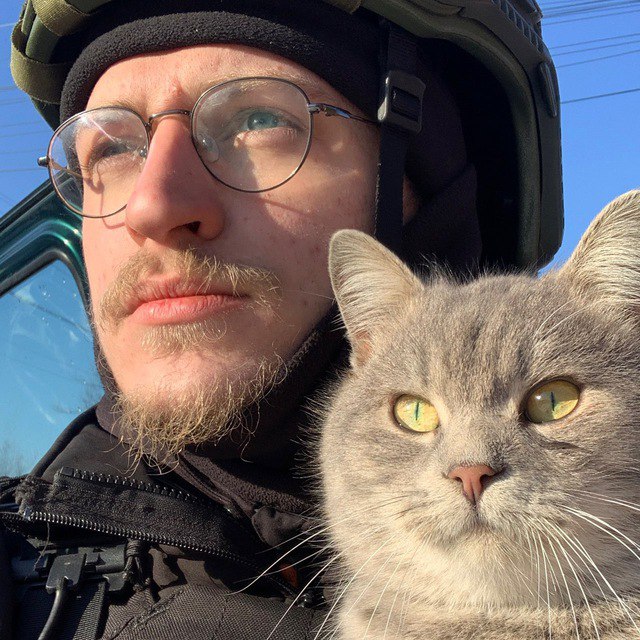
Two weeks later, my friend and I started thinking about joining the defense, but decided to volunteer at the railway station. There I filmed hundreds of thousands of people moving back and forth throughout the day. Is it safer than being in the ranks of the defense? I think that everyone who takes part in hostilities or fixes them is exposed to approximately the same degree of danger.
After the de-occupation, I had a specific goal – to visit Borodianka, because I lived there as a child. It was important for me to see and understand what really happened there. During the occupation, my relatives remained in the village – my grandfather, father and stepmother, so I went there as soon as I could.
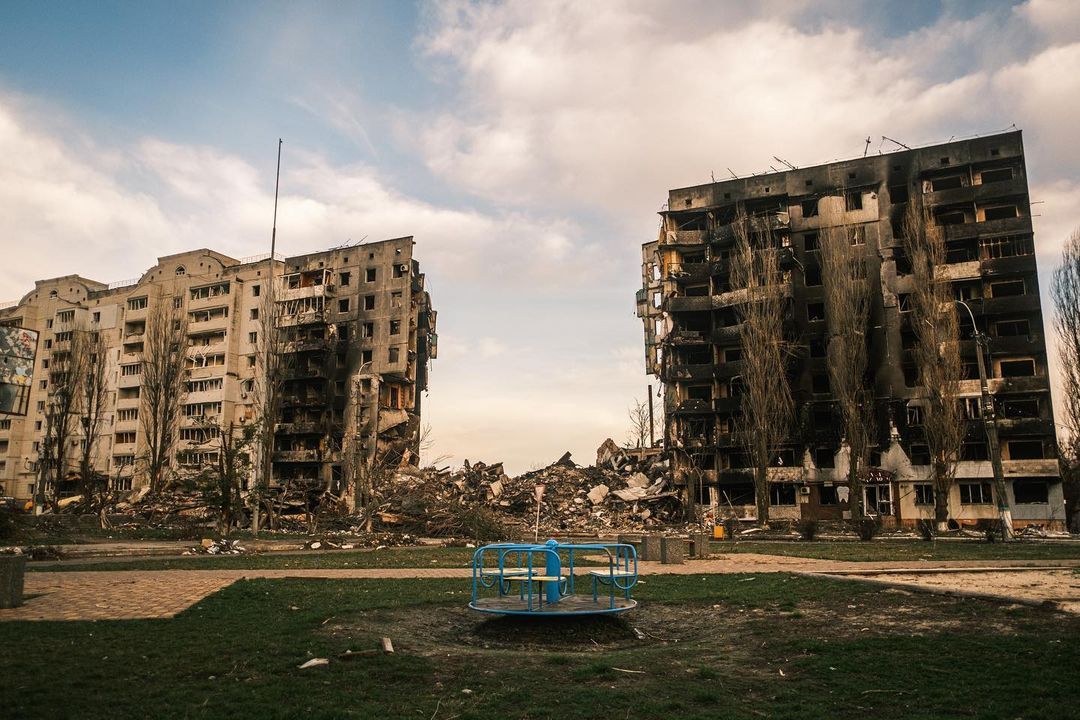
For three days I lived with DSNs, took pictures of everything I saw, talked to people. Working in Borodianka was my first trip as a photojournalist. I involuntarily compared what I saw with memories from my childhood. Once I met with an acquaintance of my father – we walked with him past one of the destroyed high-rise buildings. He pointed to her and said: "My mother-in-law is lying here now." People under the rubble spend more than one day, maybe four weeks. In such cases, everyone understands that no one survived there. But, of course, the fact that these rubble is being sorted out is good, perhaps they will find the bodies safe and sound.
An acquaintance pointed to a destroyed high-rise building and said: “My mother-in-law is lying here now.”
In Borodyanka, there is one position on the outskirts of the city, where a sniper sat in the building. From this place he shot civilians. Just like that, for the sake of training. It's terrible, but you need to know about it and you need to see it. It seems to me that the essence of documentaries and photography is precisely to peer into horrifying things and comprehend what happened.
Later, together with my Belarusian colleague Dmitry Galka, I began to travel along the fronts: to the Kharkiv region, the Nikolaev region, the Donbass. The Kiev region, except for Borodyanka, was not very interesting to me at first – many journalists worked there. I was more attracted to the Nikolaev region, I thought that Nikolaev in the summer is a more or less safe place. But when I got there, I realized how wrong I was. Sometimes it was more dangerous there than in the Donbass, where direct clashes are frequent.
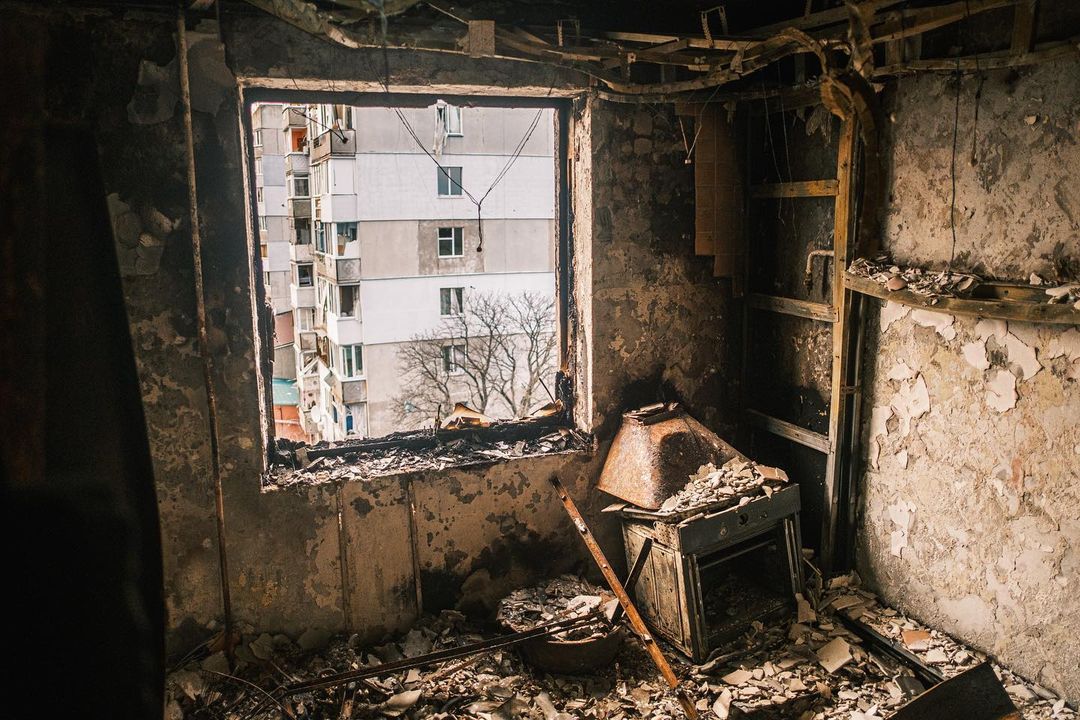
I was very surprised by the scale of the missile strikes, which were repeated every day. Probably only there I began to understand the full horror of war. I saw many corpses, many deaths and many people who lost their loved ones. When we hear about the number of those killed, we perceive these figures as statistics, but when you begin to realize that those killed are someone’s relatives, daughter, wife, mother, when you learn more about these people, then the response inside becomes stronger, the stories become deeper .
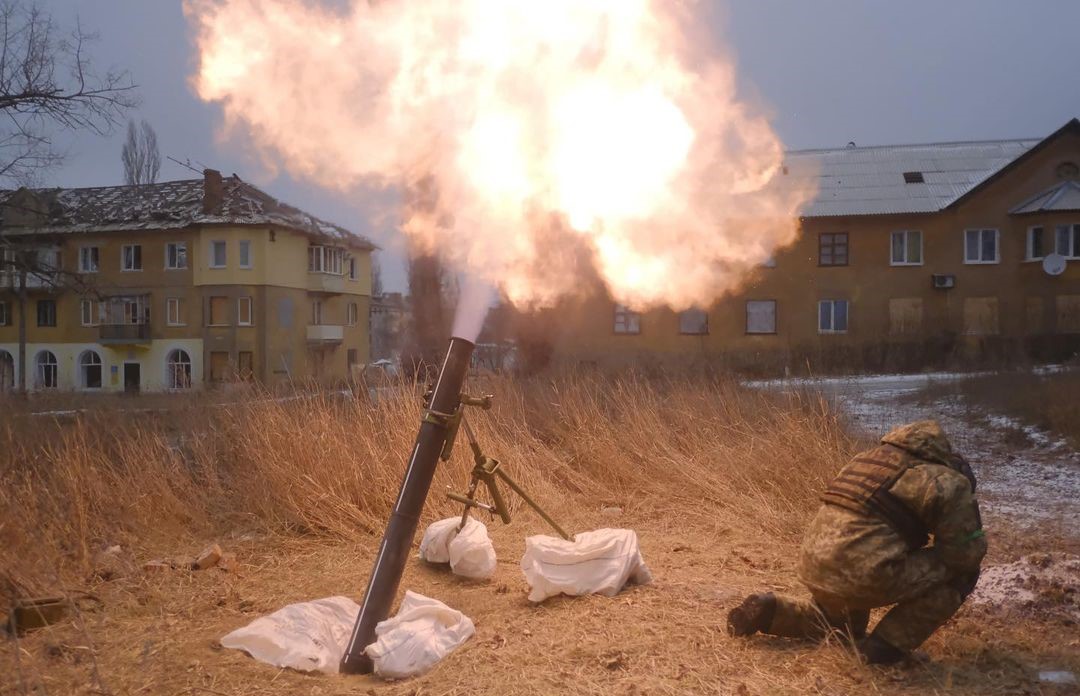
In Nikolaev, we lived in a rather dangerous area, not far from the airport and railway station, on the edge of the city. This is the southern part, which was closest to the occupied territories and Kherson. Every day at five in the morning five to twelve cruise or ballistic missiles arrived. Every day we went to the rubble together with the rescue service. Somehow we went to a place where a five-story building was completely destroyed: three floors simply fell on the first and second. Under the rubble were people who, most likely, did not even have time to wake up. However, there was also a guy who managed to jump out the window and miraculously escaped, but his grandmother was under the rubble.
In Nikolaev, from five to twelve cruise or ballistic missiles flew in every day, we constantly went to the rubble
There was also a man who walked around the house and picked up scattered film photographs – black and white ones from the family album. He went and collected them, and then at some point he began to cry. I approached him, asked if there were any of his relatives in this house, he answered “yes”, but did not specify who exactly.
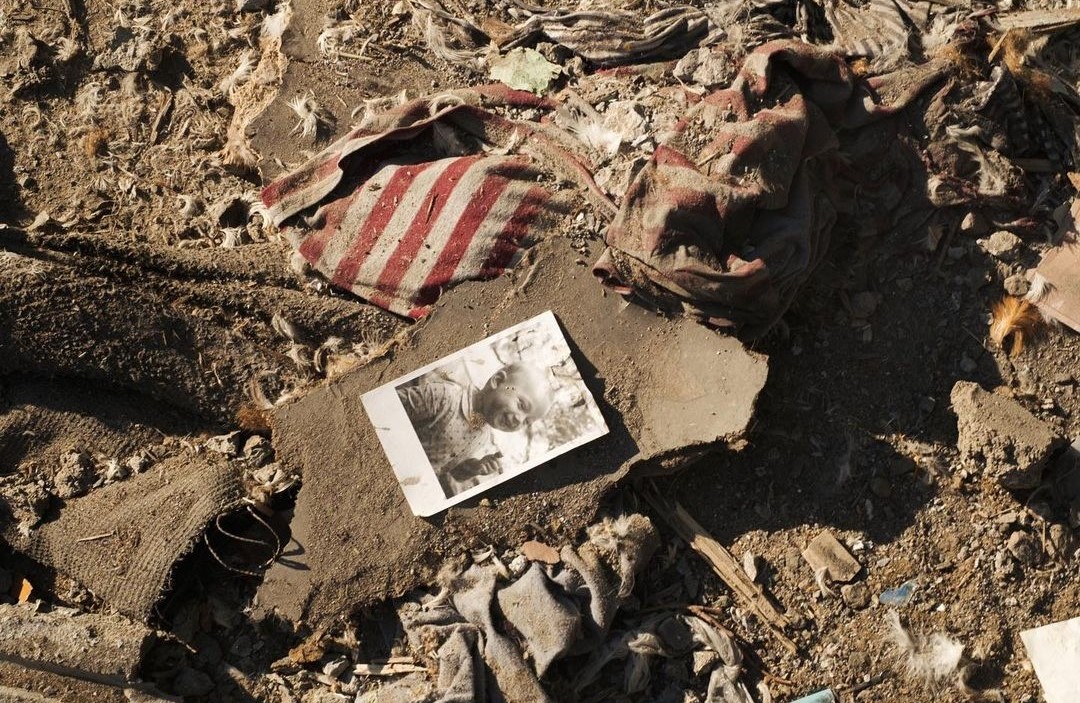
When they began to take out the bodies, the man could not even identify whether it was his relative or not. The bodies were so mutilated that they were unrecognizable. That was the first time I saw a dead person with my own eyes. Unfortunately, in such situations, you can do nothing to help those who have lost their families if they themselves do not turn to you. I always try not to violate anyone's boundaries, do not invade a person's personal space and photograph in such a way that he does not pay attention to it. Journalists do not have a very good reputation among the civilian population, we see a lot, but in most cases the only thing we can do is just take a picture.
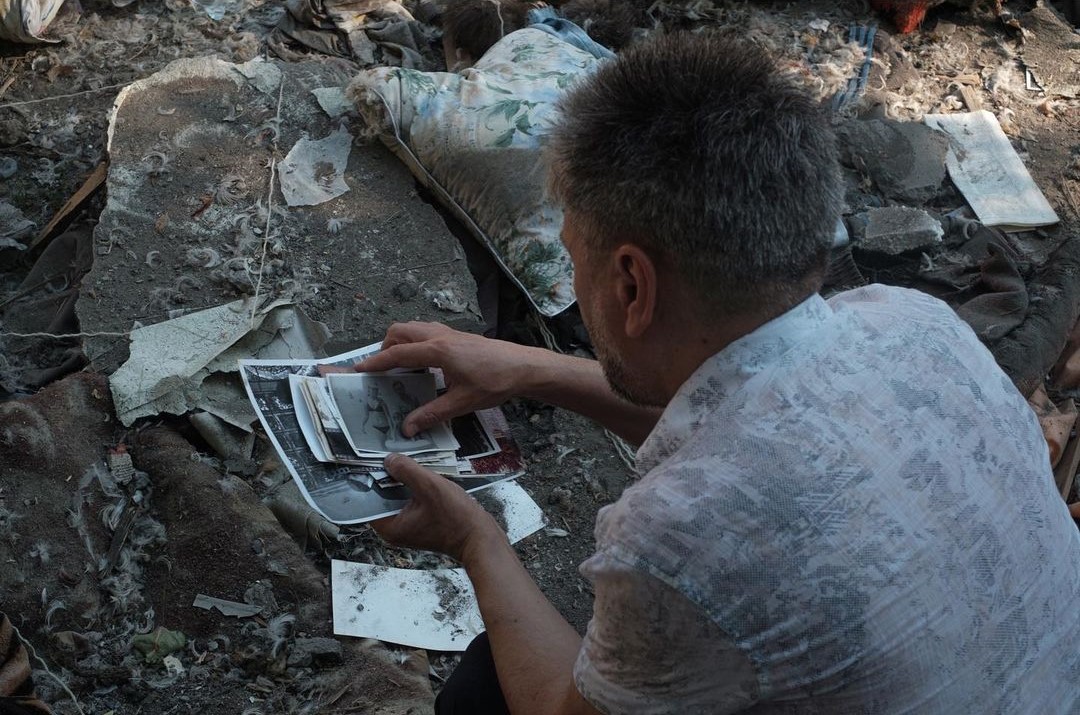
After Nikolaev, I went to the Donbass, spent two weeks in a paramedical hospital in Slavyansk. There we recorded the everyday life of employees more than professional. The doctors did not like it when we filmed them at work, kicked them out of the operating rooms. I still have a couple of frames, but I was not allowed to use them. In general, it is difficult to work in hospitals – I think this is because of television, where journalists film absolutely unnecessary things. They can rent a building inside, outside, publish it, and then they start flying there. Now, as far as I know, it is forbidden for journalists to work in hospitals in Donbas for an unlimited period of time.
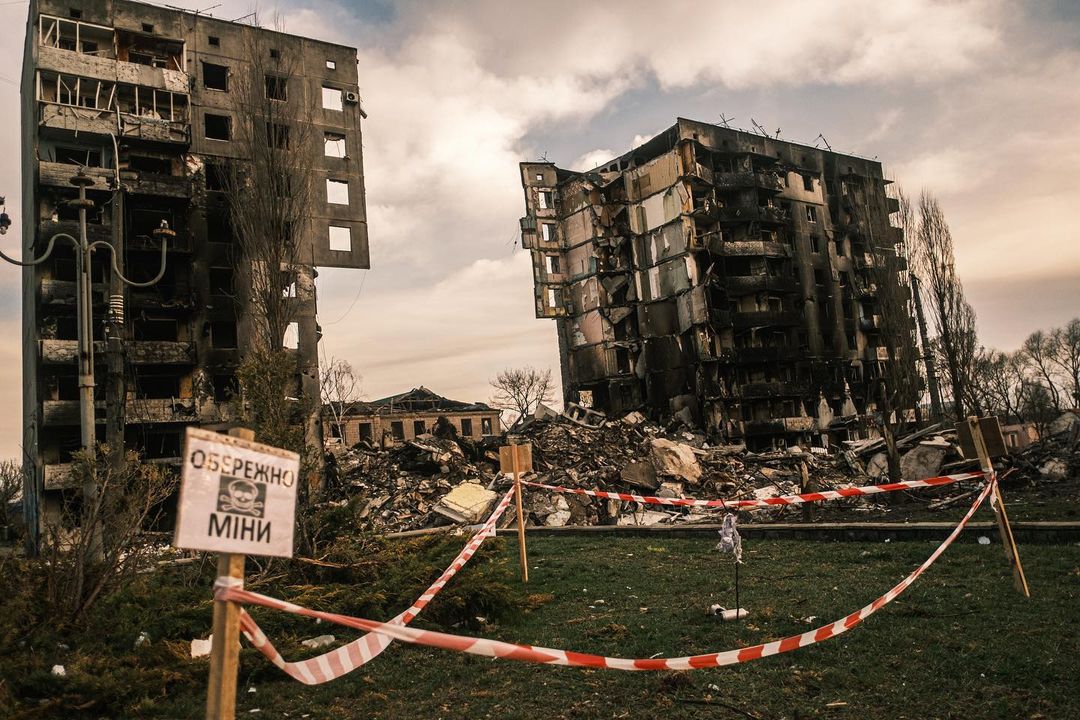
It was more interesting in Bakhmut, where I spent almost a whole month, from December to January. I only had a backpack, a bulletproof vest, a sleeping bag and a helmet with me. For several days I lived with volunteers, then for another week with DSNs and the military. Later, I managed to join the civilians living in the basement – there were about fifteen adults and six children, and I became very close to them. Among them was one girl, Milanka, we sat with her all day and sculpted from plasticine, which my friend brought, played Monopoly or chess. I spent Christmas with them, and it was a very valuable experience: when you sit in the basement with tea while playing a board game with beautiful people and forget that there is a war at all and that if you go out into the street, you can die.
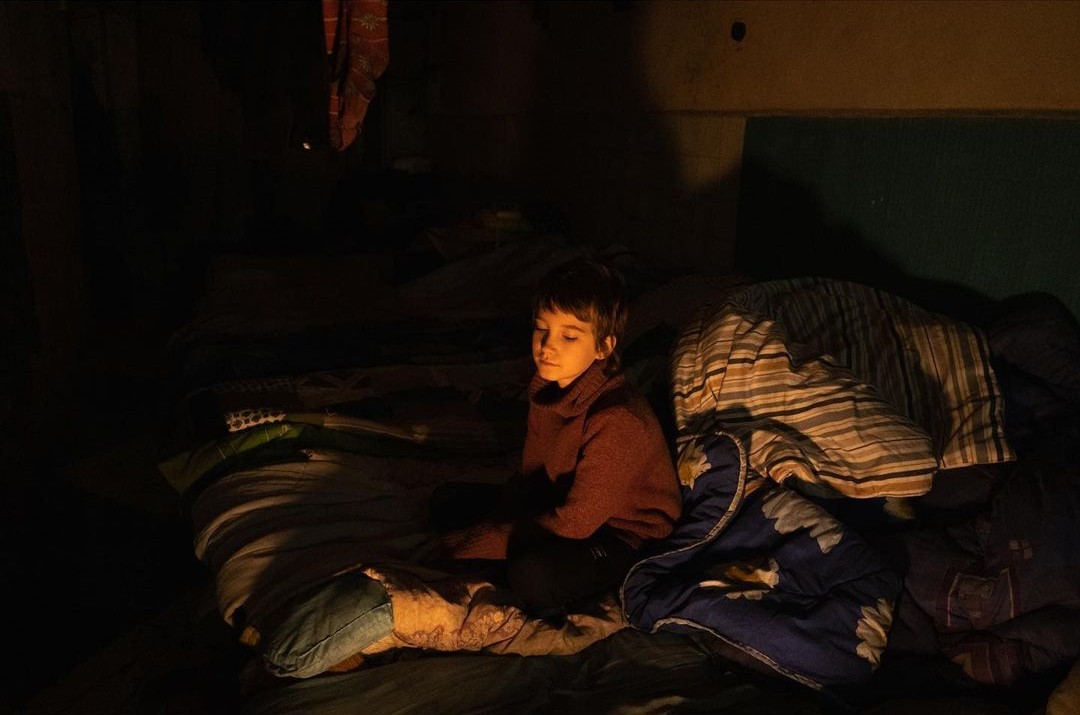
At one time I lived in a volunteer center near Bakhmut, it was a rather dangerous zone – the Russians were only four hundred meters away. Usually shifts at the front take place at night, and on the third day I felt how terrible it is: always living in the expectation that the Russians can come to your basement. I knew that if they found me, I would be captured, because at that time I already had accreditation from the Center for Strategic Communications and Information Security. When you are on the front line, but the military is next to you, you feel calmer. Or when you are not alone, but with a colleague, and you, leaving the car somewhere in a safe place, go on foot in an open area. Here, however, if you see a drone above you, you need to have time to raise the camera so that these nonhumans, these n * doras see that there are journalists here, and maybe there will be a chance that you will stay alive.
If you see a drone above you, you need to raise the camera so that these nonhumans can see that there are journalists here, and maybe you will stay alive
I often notice that people who live close to the front are very afraid of silence – they are used to constant explosions and shelling. It happens to me too. I always need time to adapt to a quiet life where people talk about mundane things. When you are at the epicenter, you perceive the war from the first person, and when you move to a relatively safe place, you watch everything as if from the side, already from the third person.
I still do not fully understand how I feel or how I will feel further in this war. There is always a sediment, like the military, but in a slightly different form. They see the death of their brothers, friends and relatives. Paramedics abstract very quickly, surgeons generally sin with harsh black humor. Rescuers also perceive all this exclusively as their job, because if you think about what is happening too emotionally, then you simply cannot do your job normally. There are, of course, periods when you lie down and cannot move – you get tired both mentally and physically, but there are also good things.
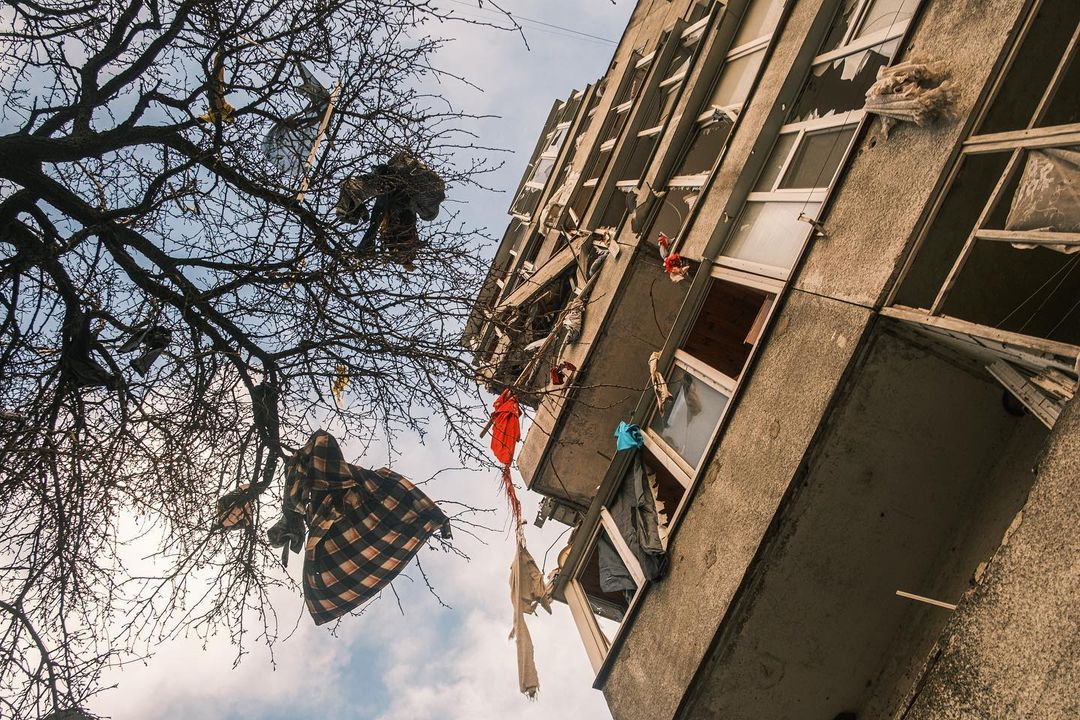
One of my best memories is from Kherson, the day the city was liberated. You drive along the road, you pass villages, and they wave Ukrainian flags at you, and everyone around is in high spirits and positive. Now I understand that this liberation happened only because the Russian front weakened for a moment. Unfortunately, Kherson is still suffering, it is very difficult for him from everyday massive shelling and constant deaths. But then, on the day of liberation, it was a holiday for the entire Kherson family.
I have thought many times about quitting and going to war, but I always come to the conclusion that I will be more useful in exactly what I am doing now. In order to become a good military man, you need serious preparation: you can’t just sign up for the military registration and enlistment office and go to defend the country the next day. We need training, they usually take a month, but how can you become a model soldier in a month?
And I want to help here and now. When I arrive from the next exit, I do not allow myself to think for a long time where to go next. Now in Borodyanka I feel relatively well, and this is the first time in a whole year that I have been in peace for so long. But this is solely for obtaining a driver's license in order to work more efficiently at the front.
When you are at war and you can die at any moment, you become more open to the world, so to speak. The same coffee and cigarettes take on much more meaning. When all this is over, the memories will be just terrible, so now, in the heat of the moment, you want to perceive it as something warm and kind – for example, the same wonderful children from the basements. If you look at it globally, then all this is a disaster, but if you look at it more locally, then you can say to yourself that the day went well.
Vojtech Bogach: “When I saw how many dead bodies were everywhere, I thought it was some kind of computer game”
While studying in the Crimea, I did an internship at the newspapers Segodnya and the Moscow Times, and it was during this period that the annexation took place. Before that, I had ambitions to become a journalist, but when I got to the very epicenter of events, it is much easier to get involved in work. Then I started writing about what was happening for various Czech publications, and later I went to Donbass as a freelance journalist and started blogging. After what I saw there, I quickly got involved and still work as a journalist in a conflict zone.
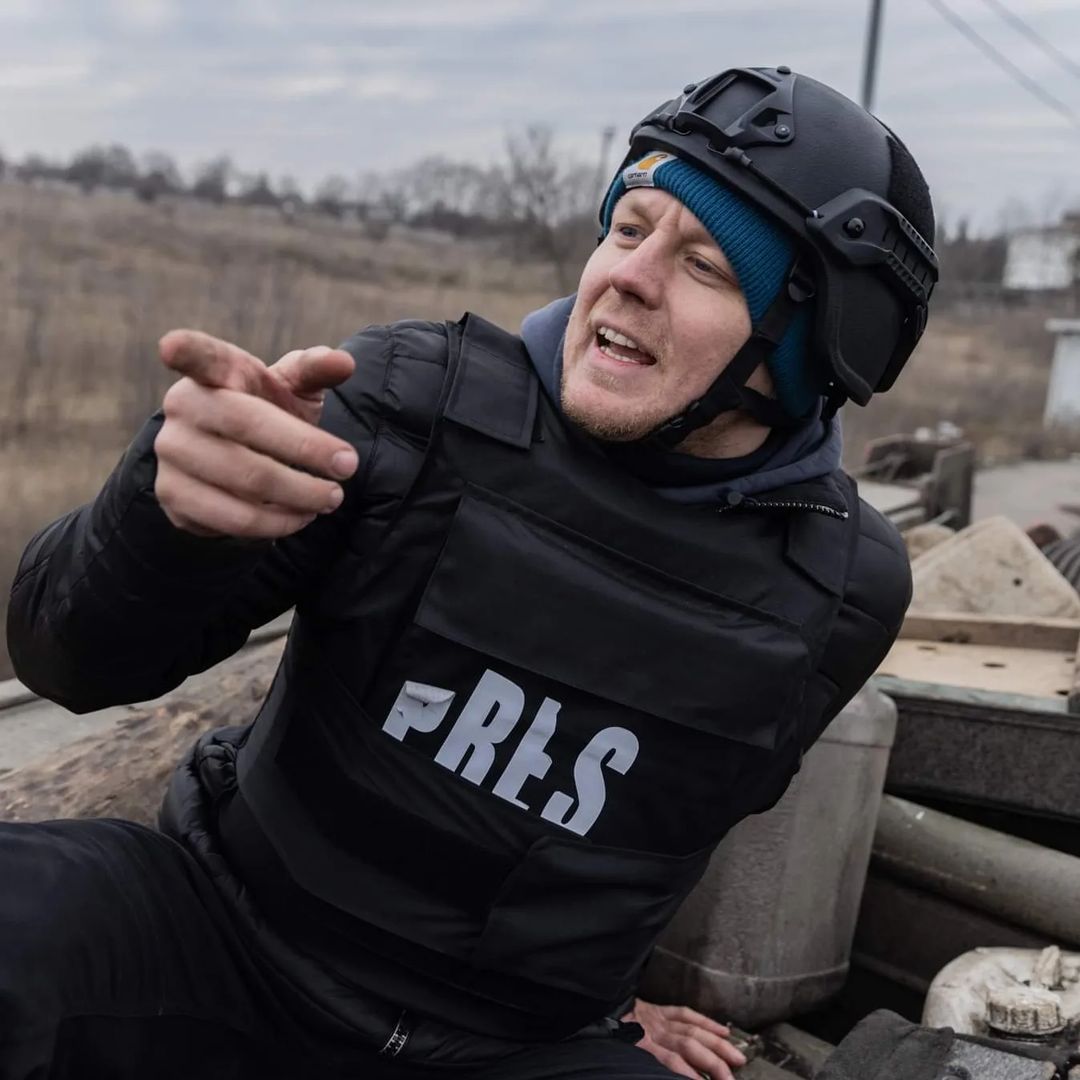
Fear is always present, but interest and love for your work interrupt everything. For example, it was scary when I drove into the Donbass and there was a tank sight. Or when I worked in Turkey and there was a Kurdish uprising, but at such moments, excitement and curiosity overpower the rest.
I knew that there would be a war while still in the Czech Republic. Friends in Kyiv said that many began to collect the alarm case back in November 2021. Therefore, in February, I went to Ukraine and began to wait. We assumed that the war would start immediately after the Olympic Games in Beijing, so we began to observe how Kyiv lives. People – at that time the military and volunteers – conducted training: they taught how to behave if an invasion began.
Later we decided to study the situation on the border, to look at the accumulation of Russian troops. We got to Ovruch, a town on the border of Ukraine and Belarus – it was twenty kilometers from it to the Russians. There we also met the beginning of the war: rockets flew over our hotel at five in the morning. I didn’t sleep that night: I watched the information in the Telegram channels, and then I woke up my colleague Maida Slamova and told her that the war was starting. We opened the window to hear what was happening on the street – we were near the border and were afraid that they might launch a landing force. When the first rocket flew, literally two hundred meters above us, it felt like something was cutting the sky. Everything was divided into two parts: what was before, and what is now. It's like a knife that cuts something: one half is the past, the other is the beginning of a new one. The whistle of a rocket meant the beginning of a new era for me. We didn't think it was scary or not.
Maida and I immediately went downstairs, the watchman was sleeping there. We woke her up and said we were leaving, but she did not understand why we jumped up so early. When we explained everything to her, the woman began to cry that she had three sons who would go to fight. It was very sad. Already in the car we heard two more explosions, but nevertheless we drove in the direction of Zhytomyr and Kyiv.
The first time I came under fire was on the sixth day of the war, March 2. We worked in Kyiv and saw messages from residents of Borodyanka. They wrote that they were sitting in basements: a bomb had hit the house, they were under rubble, and they needed help. Neither they nor we then knew how it happened, they did not know that the plane dropped an aerial bomb. We did not understand then whether Russia was deliberately bombing civilians or not. Together with our Ukrainian colleagues, we decided to go to Borodyanka and find out what was really happening. Near the village of Motizheno, we saw a car that had been shot down — at that time the front line passed there. We learned that civilians who are trying to leave in cars are being killed there.
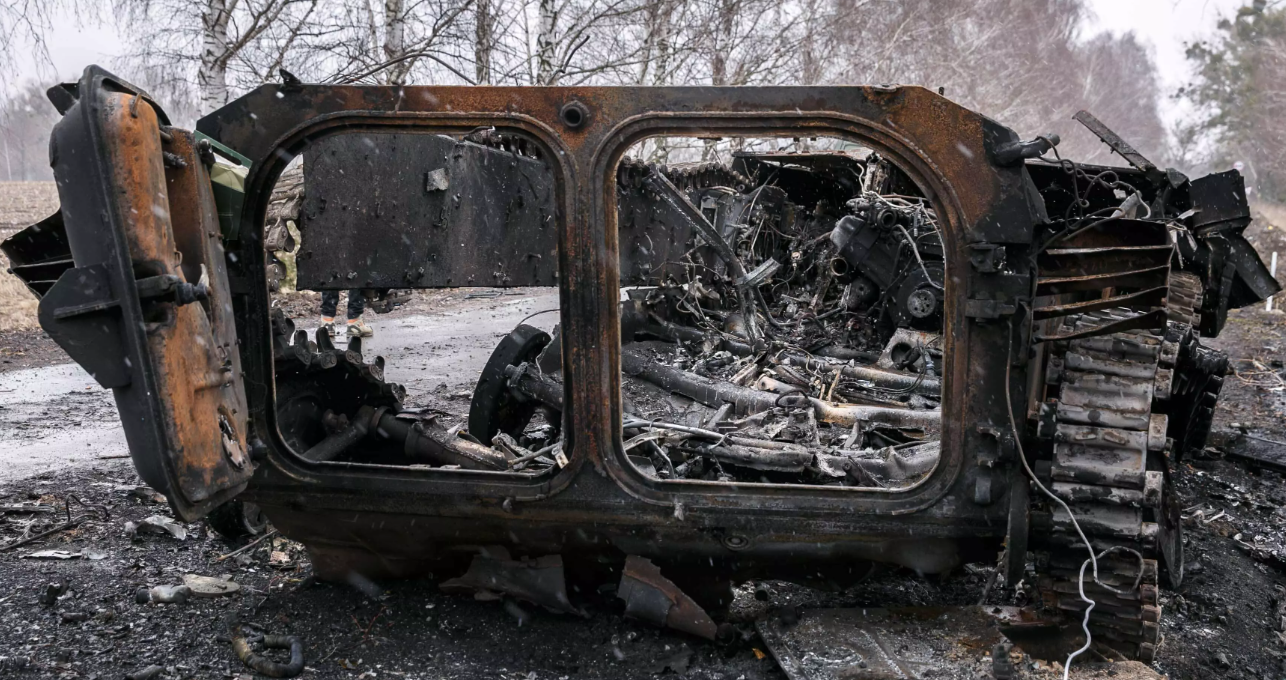
We began to notice armored personnel carriers, decided to find a detour route, and behind Motijeno we stumbled upon a KamAZ, which had the letter V on the sidewall. I saw that it was not a shot car, but a car with a V, and began to slow down. And when I had already braked about two hundred meters from the car, they opened fire on us.
Bullets from this shelling are still lying around somewhere in the car, and I managed to film what was happening on camera. We were saved only by a miracle. When I later published a report, a woman wrote to me who was looking for her husband, who disappeared in the same places. She described his car as a red Renault or a Ford with Czech license plates. But we did not see him, and I said that Russians were standing there, and if he had not made himself felt for two days, then he was probably hardly alive. A month later, when the Russians had already left this place, we returned and found the same red car there – shot, and learned that the husband of this woman was killed two hours before they shot at us. He drove people from Kyiv to the West, helping to evacuate.
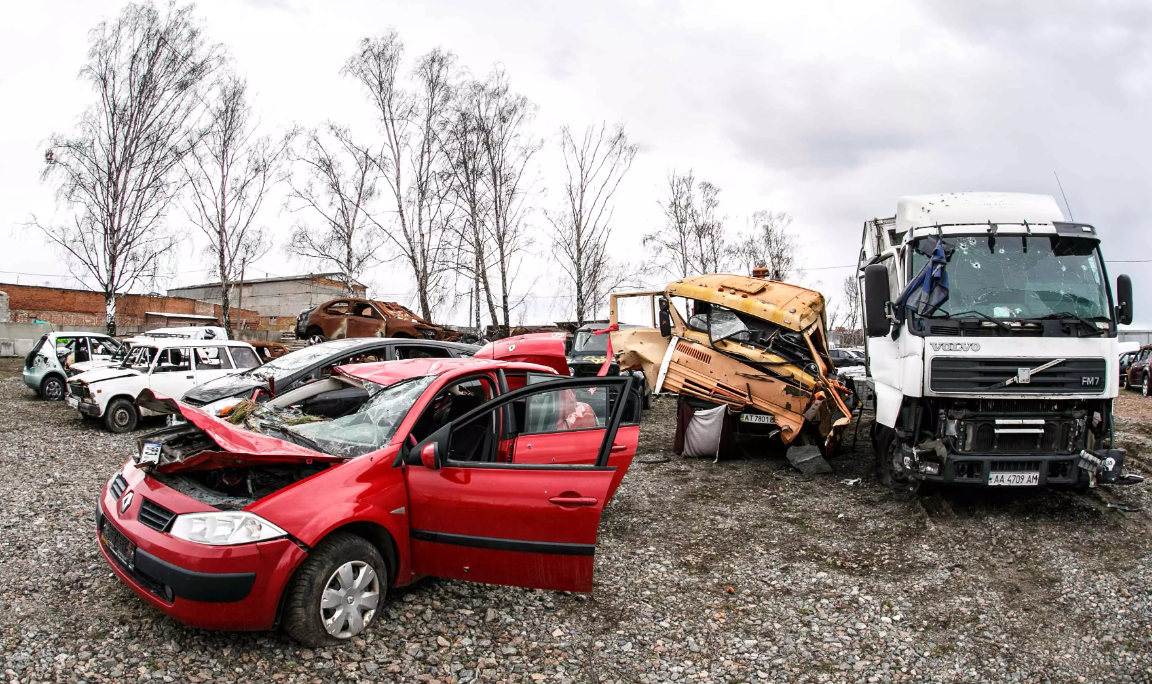
When we finally managed to get to Borodianka, they just started pulling people out from under the rubble of residential buildings. As a result, rescuers found somewhere around 47 bodies of those who were waiting, but did not wait for help. They gradually died there. We worked in Borodyanka for two days, and it was hard. I remember there was a man of 45-50 years old, and here he stood, hoping, then he saw who was pulled out, walked away and cried.
Rescuers found 47 bodies under the rubble, these people were waiting for help and slowly dying
While the rescuers were pulling out the corpses, I went inside the destroyed house. It was this building that had the most victims: many were left under the rubble, most of the house burned down, but some still survived. I went up to the fifth floor, where there were people who were trying to save some of their things, and met a man who had nothing left: his house burned down, and almost the entire family – mother, brother and someone else – died. And here he was standing in a ruined apartment, telling how he always used to go fishing, then he picked up a goblet associated with fishing, burned, and that one fell apart in his hands. This picture will forever remain in my memory, as well as those stories that other people told who were looking for their brothers, sisters, mothers under the rubble.
When I talked to people there, I asked why practically no one goes down into the cellars during the air raid. Many answered that war is war and that they are used to the fact that every day someone dies. They do not want to waste time running to the basement several times a day – and so they know that at any moment something can happen.
At first I did not believe in the reality of what was happening. When I saw in Borodyanka how everything was broken there and how many dead people were everywhere, it seemed to me that this was some kind of movie or computer game. Now I'm already used to such pictures. I saw those killed in the Donbass in 2015, but it was completely different. We went to Donbass for the first time in April last year. They worked near Slavyansk on the front line. Were in Nikolaev. Там постоянно бомбили, умирало большое количество людей. Первое, что мы увидели, когда заехали в город, — стариков и молодых людей, которые тащили канистры с водой. Они набирали ее в реке. Мы с ними разговорились, все было хорошо, а когда моя коллега начала их фотографировать, местные ополчились на нас и стали называть диверсантами, говорили, что мы передадим потом эти фотографии русским и те будут бомбить.
Были мы и в Херсоне. Один парень, который был в теробороне еще до начала войны, рассказывал, как его пытали и держали в СИЗО, где с ним делали действительно страшные вещи, иногда даже с применением электричества. Но при этом он говорил, что другим было гораздо хуже, чем ему. Один из них прятался в канализации под городом вместе с бомжами, ему приносили еду, он пробыл там три месяца. Потом смог с кем-то связаться через знакомых и стал жить в доме в отдалении, но постоянно боялся, что за ним придут и будут пытать.
Парень из теробороны три месяца жил в канализации, чтобы его не нашли русские
В Херсоне я был первый раз года три-четыре назад, а второй — в конце января этого года. Коллеги, которые были в Херсоне в день освобождения, рассказывали, как радовался город в тот момент. Сейчас сложно представить это празднование, потому что в январе атмосфера была очень депрессивная из-за ежедневных прилетов, постоянно кто-то умирал. Мы были в одном дворе после попадания туда «Града», и многие говорили, что нужно уезжать, потому что Россия хочет полностью уничтожить этот город. Мне кажется, той ноябрьской радости и надежды у населения уже не осталось.
Очень многие из них не хотели выезжать, там осталась примерно треть. Город выглядел темным и пустым, особенно ночью. Если спускаться к реке, то там довольно опасно, говорят, что стреляют даже из пулеметов. В центре безопаснее, а ближе к Антоновскому уже постоянно стреляют. Но когда я был там, все равно хотел увидеть реку и мост. Когда мы пришли к реке, увидели киоск, где девушка лет двадцати продавала кофе. Я спросил, не страшно ли ей там находиться, на что она сказала: «Нет, тут не страшно — бьют в тот дом и в тот, а сюда еще не били». На вопрос, не собирается ли она уезжать, она ответила, что не хочет, потому что будет «для хлопцев кофе готовить». Рассказала, что работала в этом киоске и при оккупации, россияне только пьянствовали, а украинцы сейчас так быстро выпивают чай, что она не успевает его снова заказывать. Но она для этого и нужна здесь — чтобы помогать таким способом.
Еще около киоска сидел дед, я у него тоже спрашиваю, чем он занимается, а он говорит: «Ну, я слушаю и выстрелы считаю. Вот сейчас выстрелили, думаю, через четыре секунды здесь приземлится». Могу сказать, что в Херсоне остались либо очень стойкие, либо немножко сумасшедшие.
В Херсоне остались либо очень стойкие, либо немножко сумасшедшие
Меня удивляют люди, которые не выезжают с зон, где ведутся бои. Когда я был в Бахмуте, мне чуть ли не каждый говорил, что он никому не нужен и выезжать смысла нет, потому что идти просто некуда. И это страшно, что у людей сложилось такое твердое ощущение, что они не нужны и им никто не захочет помочь. В центре Бахмута можно было встретить только военных. Когда я там был, в городе все разбомбили, каждый второй дом был разрушен. На окраинах еще оставались какие-то дома, и люди в основном жили в подвалах. Они рассказывали, что живут так уже шесть месяцев. Там не работали коммунальные службы, возле домов было много мусора. Бахмут напоминал город-призрак, и люди в нем тоже смахивали на призраков. Из почти семидесяти тысяч жителей оставалось, может, тысяч десять или пятнадцать.
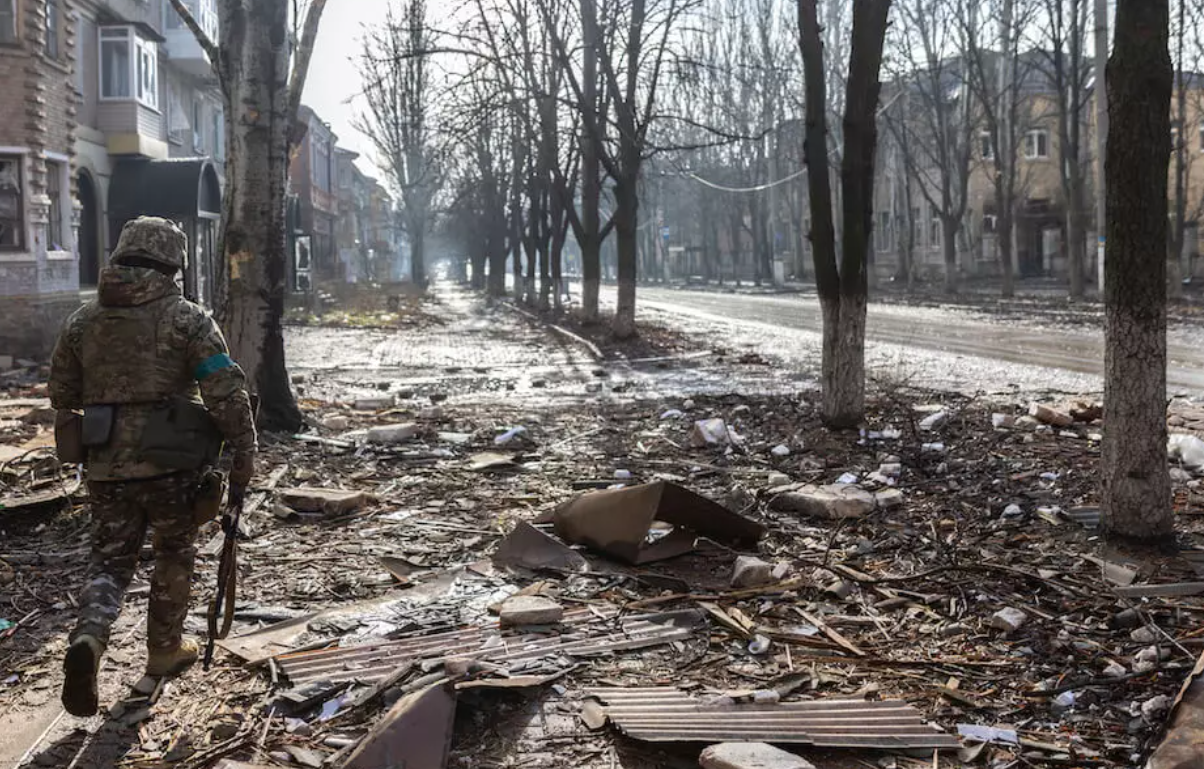
Работа в городе была только на небольшом рынке, хотя там было больше пьяных, чем тех, кто работал. И это понятно. Помимо рынка еще можно было подзаработать, если хоронить людей или заниматься гуманитаркой, — на этом все.
Помню одну женщину, которая там была, позитивная такая. Говорила, что, пока есть работа и место, где жить, она будет оставаться в городе, но если Россия его захватит, то жить здесь она больше не захочет. Это единственный момент, который мог стать для нее причиной, чтобы уехать. Она тоже говорила «кому мы где нужны», жила недалеко от водохранилища, рассказывала про постоянные обстрелы и при этом спокойно продавала мясо.
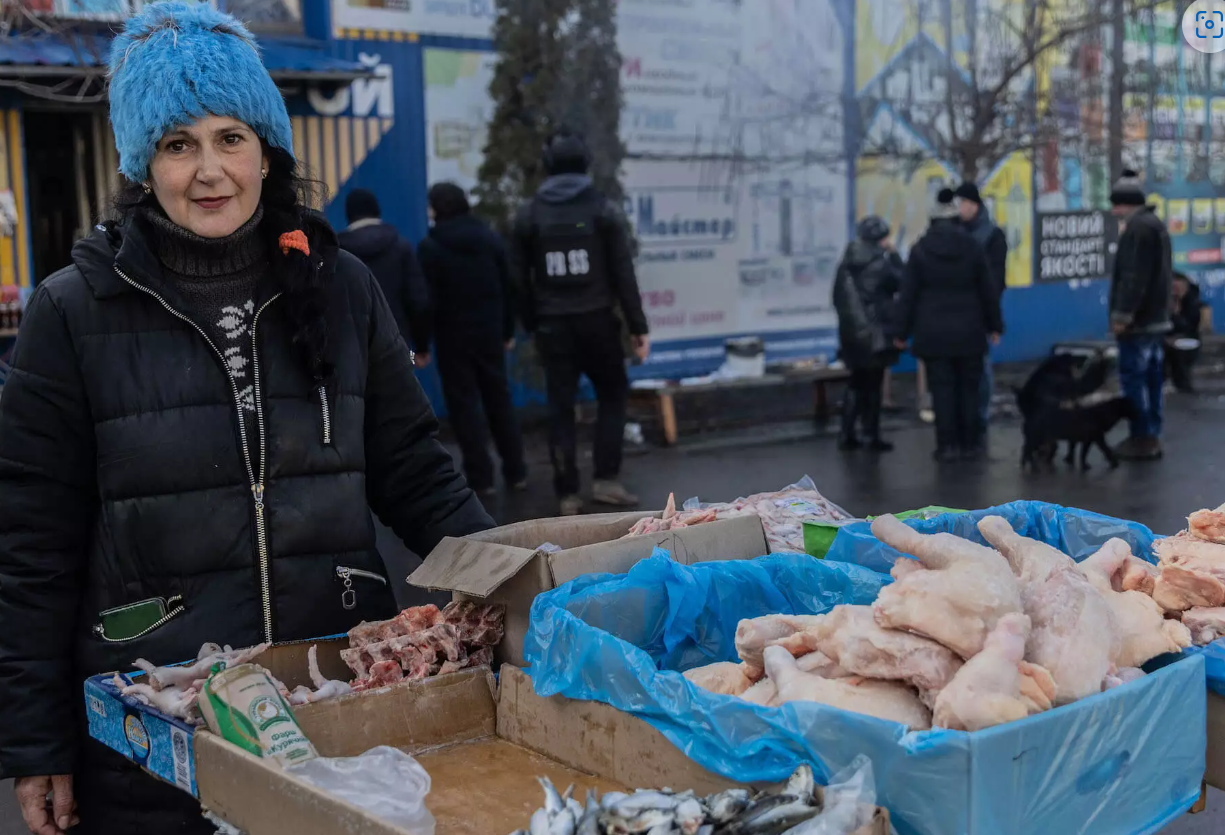
На этой войне я стал задумываться, оставаться ли работать военным корреспондентом. Все-таки я этим занимаюсь уже восемь лет, прошел и Донбасс, и Афганистан и уже не воспринимаю происходящее как что-то новое. Сейчас у меня уже нет такого интереса, как в первый раз, когда ты хочешь узнать, как ведут себя люди во время вооруженного конфликта. Все войны на самом деле очень похожи. Поэтому я иногда задумываюсь, а не нужно ли оставить это тем, кто сможет найти в этом что-то новое.
Работа военным корреспондентом очень сложная, особенно если человек не хочет перегореть. Мне кажется, что всегда, когда возвращаешься с подобного рода конфликта, нужно дать себе время, чтобы восстановиться, не дать себе стать отшельником. Самая серьезная опасность — огромное количество грустных и трагических историй в голове. Когда вы возвращаетесь домой, уже не можете воспринимать своих друзей и их проблемы, они кажутся слишком мелкими. Есть журналисты, которые находятся в Украине с самого начала войны. Я не понимаю, как они могут с таким справляться, я-то тут пробыл всего три месяца в сумме.
Когда возвращаешься с войны, становится сложно воспринимать окружающий мир — все проблемы кажутся мелкими
Войну часто романтизируют, но трагического в ней гораздо больше. В основном все пишут о мужестве и о том, как отважная группа парней героически убила кого-то из армии противника, но это не вся война. Это и необходимость покинуть свои дома, потому что кто-то уничтожил их — вечером дом был, а утром его уже нет, и смерть близких, и травмы, дикие травмы у женщин и детей. Это гигантская трагедия, и ничего положительного в ней нет.
Рикардо Гарсия Виланова: «В Сирии они уничтожали больницы и школы, здесь так же»
Я занимаюсь этим последние двадцать пять лет и чаще всего снимаю с широкоформатным объективом, поэтому мне надо быть максимально близко к эпицентру происходящего. Я всегда хочу быть рядом с событиями и переживать все эмоции их участников. Иногда даже солдаты забывают о том, что я журналист, и начинают воспринимать меня как своего.
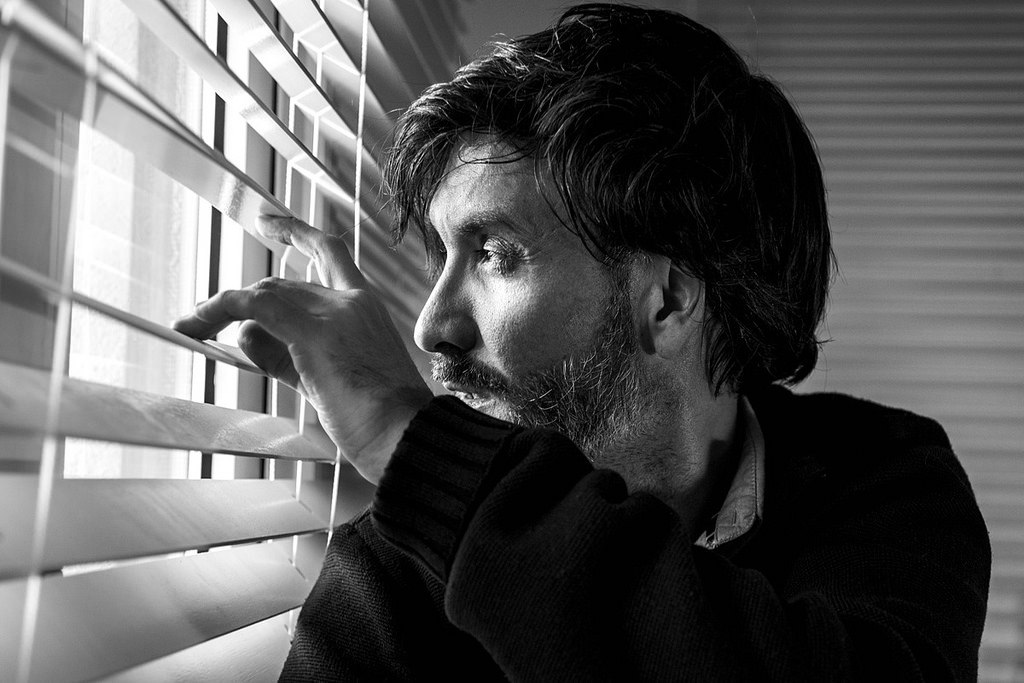
Если сравнивать с другими странами, то получить доступ к фронту боевых действий в Украине гораздо сложнее. В Сирии, Ираке, Афганистане или Ливии просто садишься в машину и едешь, а в Украине очень много бюрократии, которая осложняет процесс работы. Хотя в начале конфликта в Сирии было по-другому: туда нельзя было попасть легально, поэтому приходилось ехать через другие страны, обходными путями, а в Киев я приехал за неделю до начала войны напрямую из Барселоны.
Тут я впервые увидел такой сумасшедший интерес СМИ к происходящему: журналистов здесь более двенадцати тысяч, и это невероятная цифра для военной журналистики. Отсюда и бешеная статистика смерти среди сотрудников СМИ: обычно жертвы не превышают 3-4 человек, а за первый год войны в Украины погибли десятки журналистов.
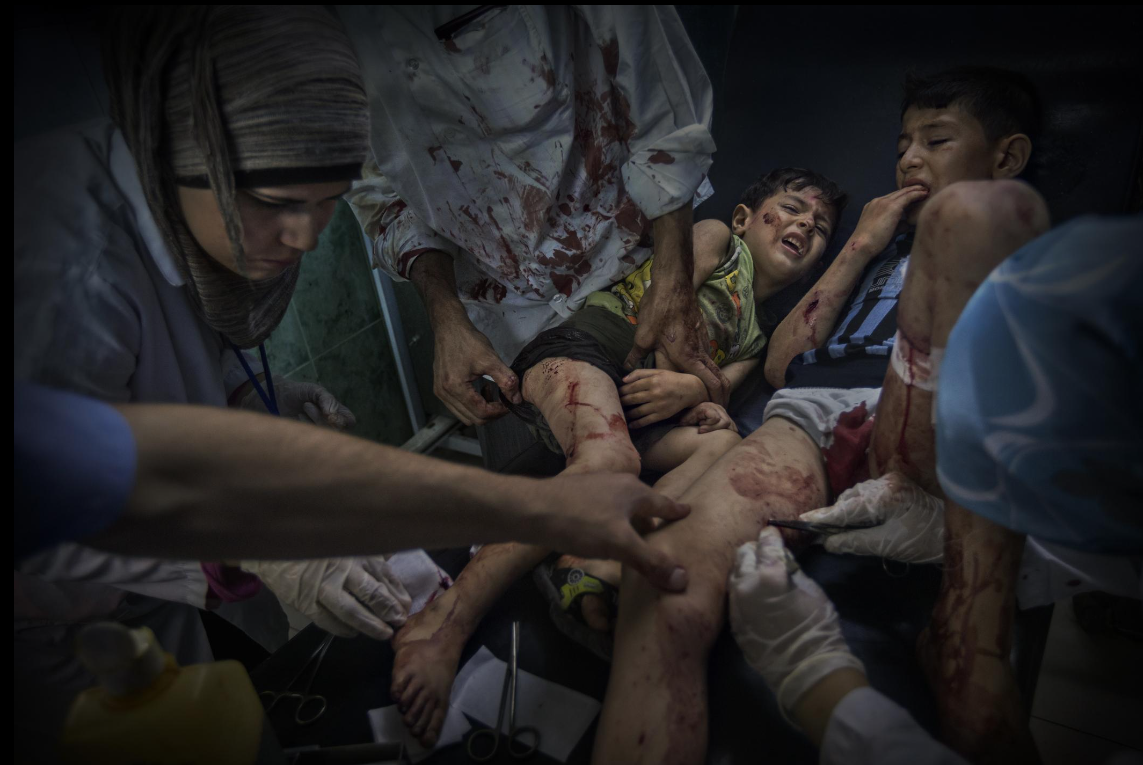
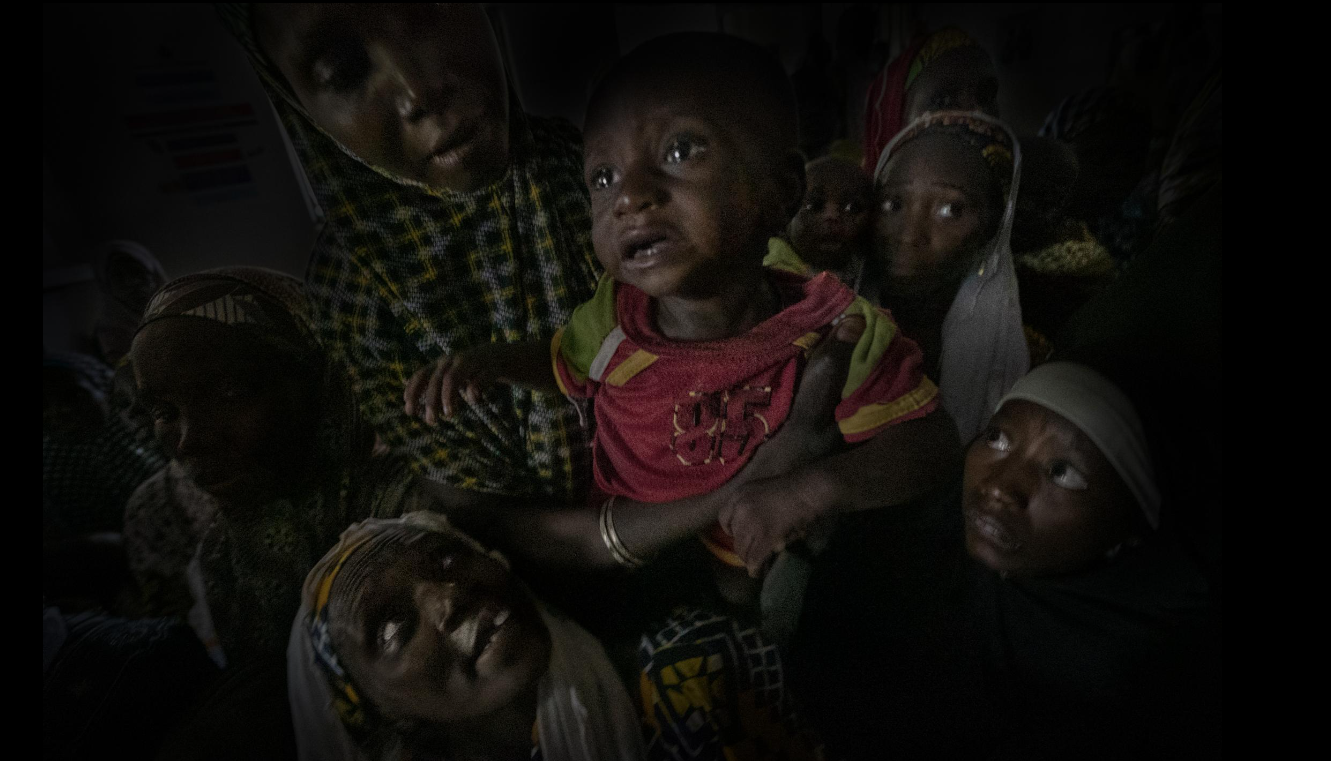
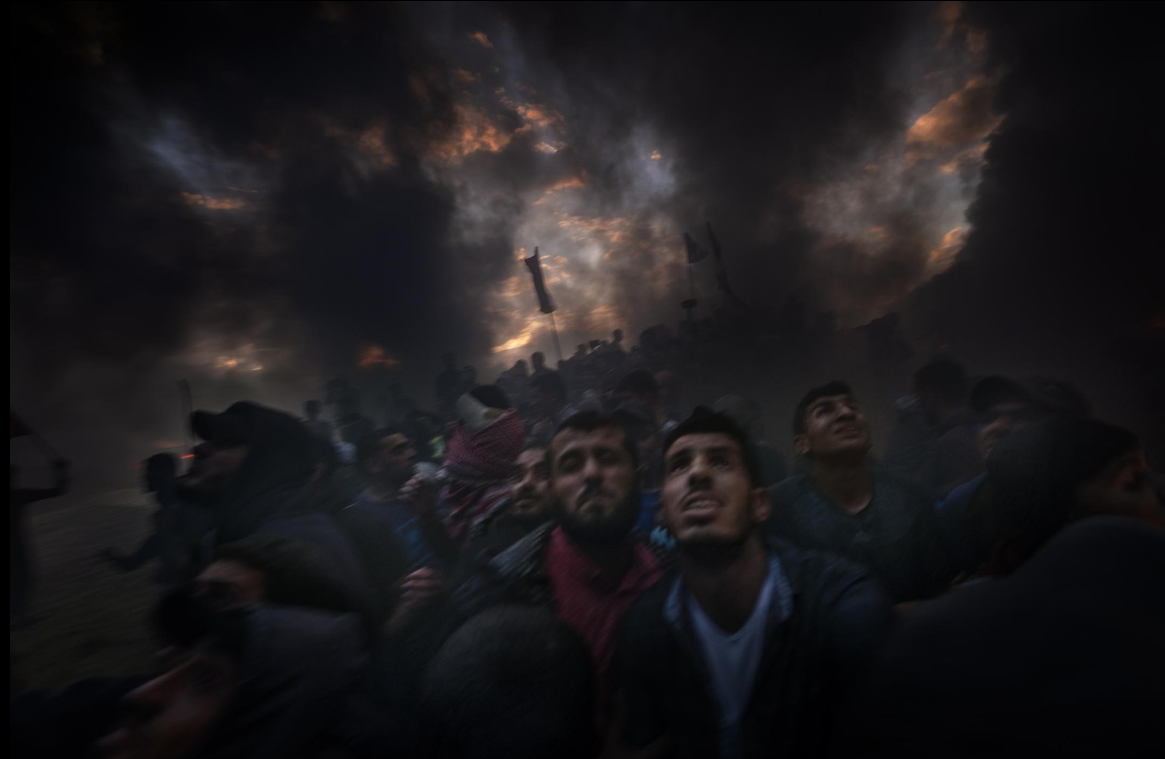
В Украине используют очень много артиллерии. По своему опыту могу сказать, что в других конфликтах чаще всего применяют в основном самолеты, танки и минометы, а в Украине 80% боевых действий — это артиллерия. Причем бывало и применение двойного удара — я не раз слышал о таких случаях, хотя в Сирии было не лучше. Случалось, что после бомбежки выжившие ждали машину час, она приезжала, и враг атаковал еще раз. У меня есть фотография, когда бомбили пекарню в Алеппо. Там было где-то три места, где раздавали хлеб, — людям в то время было совершенно нечего есть. Войска Асада определили эти места, обстреляли их, а затем, когда ушли группы помощи, снова обстреляли. Было 200 раненых и 50 погибших. В Украине подобное тоже было.
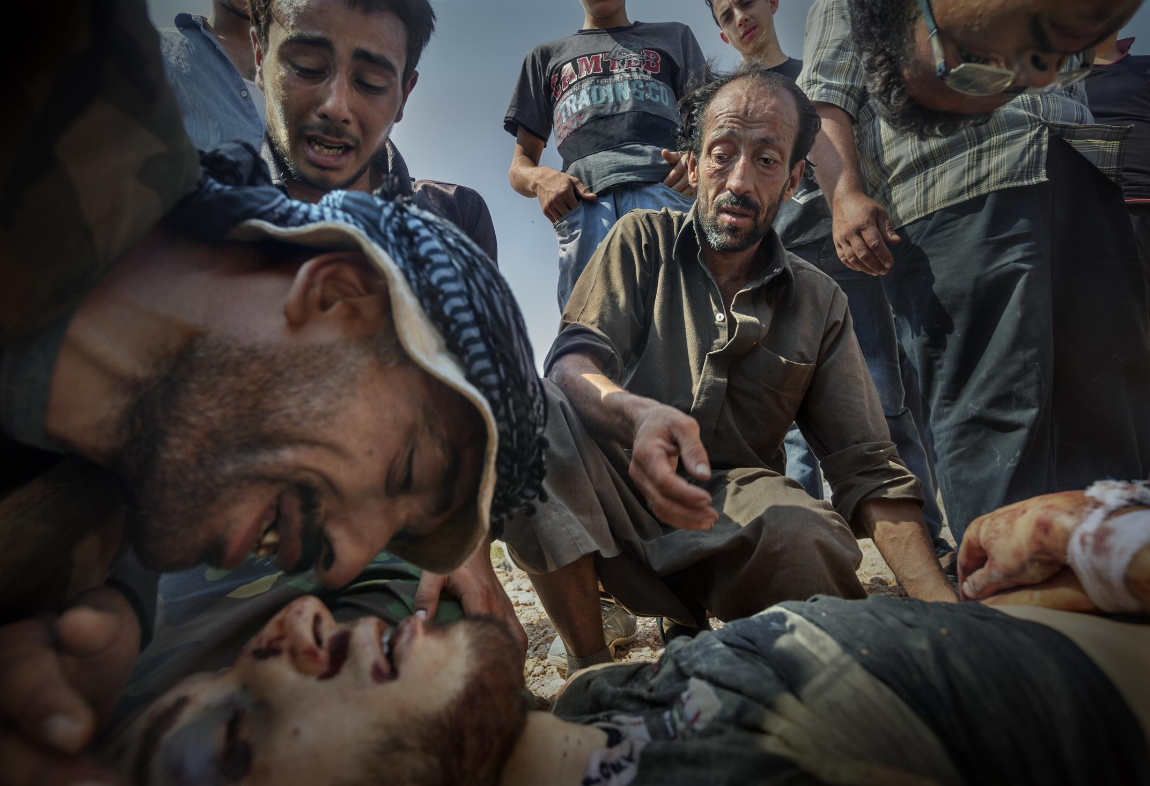
Я был в Чернигове, когда его бомбили российские войска, и помню момент, когда около нашей машины произошел взрыв. Мы с журналистами из эстонской газеты ехали на гражданской машине и в какой-то момент остановились, чтобы спросить, как подъехать к городу. И тут я услышал шум самолета. Он летел так низко, что мы смогли рассмотреть лицо пилота и огромный снаряд, который он на нас сбросил.
Самолет летел так низко, что мы могли рассмотреть лицо пилота и огромный снаряд
Снаряд упал прямо перед машиной, я пригнулся, но на пару секунд подумал, что это не поможет, так как снаряд действительно был огромный. Он взорвался, я успел это снять. У меня есть несколько фотографий, сделанных буквально через несколько секунд после взрыва. Нам удалось выжить, но потом я подумал: «Как это возможно?» Очевидно, что бомба уничтожила бы все на таком расстоянии. Оказалось, это был бензобак. Я представил: у самолета заканчивались бомбы, но пилот увидел двух гражданских и скинул бензобак в нескольких метрах.
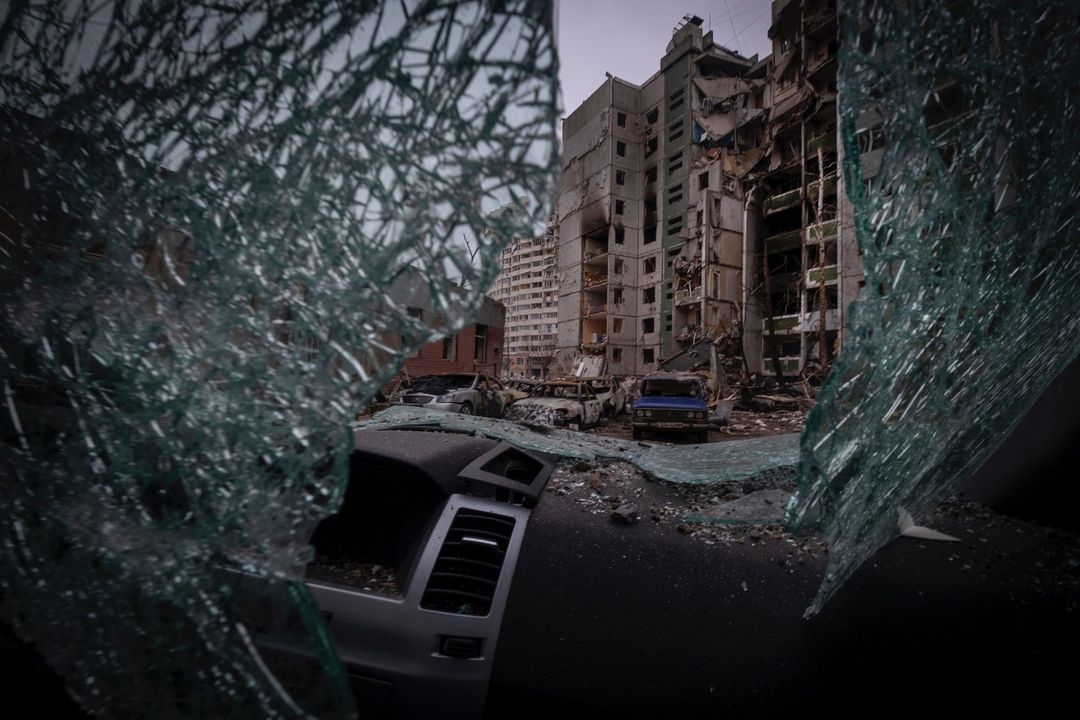
При этом пилот видел, что мы гражданские журналисты. Я почти никогда не видел, чтобы войска уничтожали непосредственно гражданские цели. Подобную тактику россияне использовали разве что в Сирии. Я могу понять войну между солдатами, армиями, но целенаправленное уничтожение гражданского населения — нет. Как можно вот так убивать людей, детей? Помню, как одна семья пыталась уехать на машинах и попала под обстрел. Я работаю уже 25 лет, и для меня это все равно как в первый раз.
Хотя в Ираке и Ливии, например, часто подрывали автомобили или прятали взрывчатку в трупы. В Ливии был эпизод, когда взорвалась машина с семьей из-за взрывчатки. Нам очень повезло, потому что взрыв был на расстоянии от нас и вторая машина не взорвалась следом. В Украине тоже бывают такие ловушки, например, когда открываешь окно или надеваешь шлем.
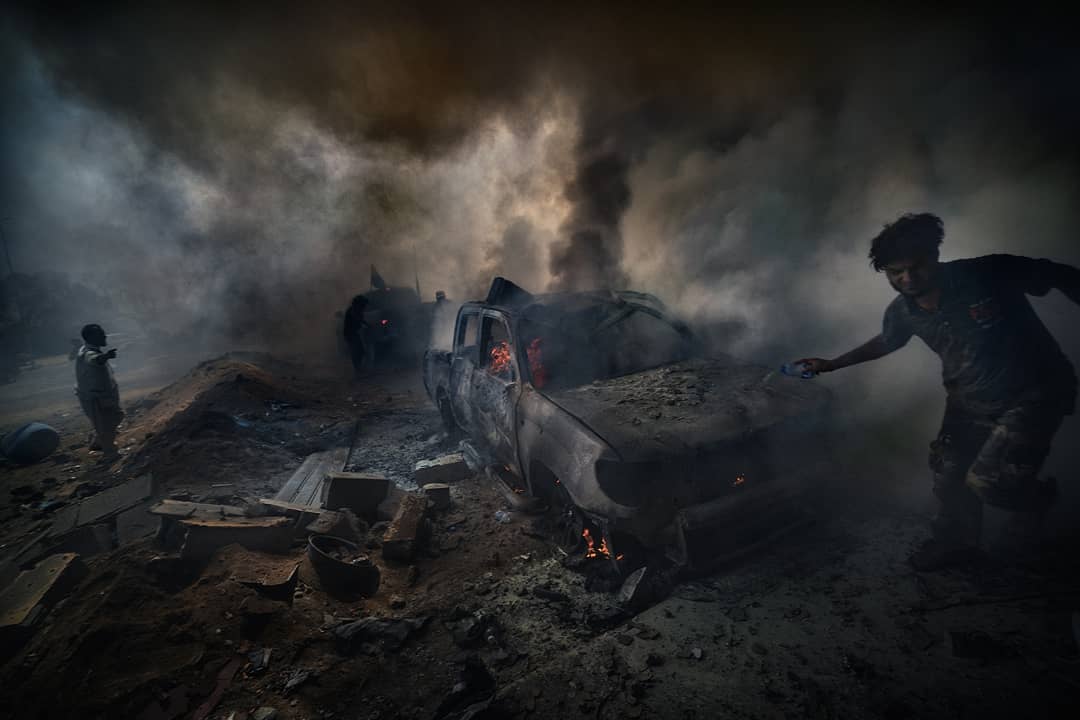
Больше всего в Украине меня удивили люди: все активно делились и едой и теплой одеждой. В других странах такое тоже можно встретить, но реже и в меньшем масштабе. В Украине много специальных пунктов, где были генераторы, вода и еда. Зимой в этих пунктах можно было погреться, но обычно там все находились только днем, а ближе к ночи расходились по своим домам. С продовольствием и одеждой иногда возникали проблемы. Киев отправлял по несколько грузовиков каждый день, но во время активных боев гуманитарная помощь не может заехать в город.
Уезжать многие не хотели, а у кого-то просто не было возможности. Я помню, как в начале войны все говорили, что россияне дойдут до Киева за неделю. Но Киев — большой город, взять его просто так довольно трудно. Я был в Алеппо и видел, насколько это тяжелая задача, хотя россияне в этой войне используют те же террористические тактики запугивания, что и когда-то в Сирии. Они хотят уничтожить надежду и вселить в людей страх. Постоянные бомбежки не имеют никакого стратегического значения и являются чисто психологическим давлением. В Сирии они уничтожали больницы и школы, и здесь то же самое.
Русские используют те же террористические тактики запугивания, что и когда-то в Сирии, чтобы вселить страх и лишить надежды
Дети — самая уязвимая сторона любого конфликта, их трагедия — худшая часть любой войны. В Украине я видел раненых детей, погибших от осколков, но, слава богу, не видел жертв прямого попадания в отличие, например, от Сирии. В Хомсе я впервые увидел ребенка, которого снайпер убил выстрелом в голову.
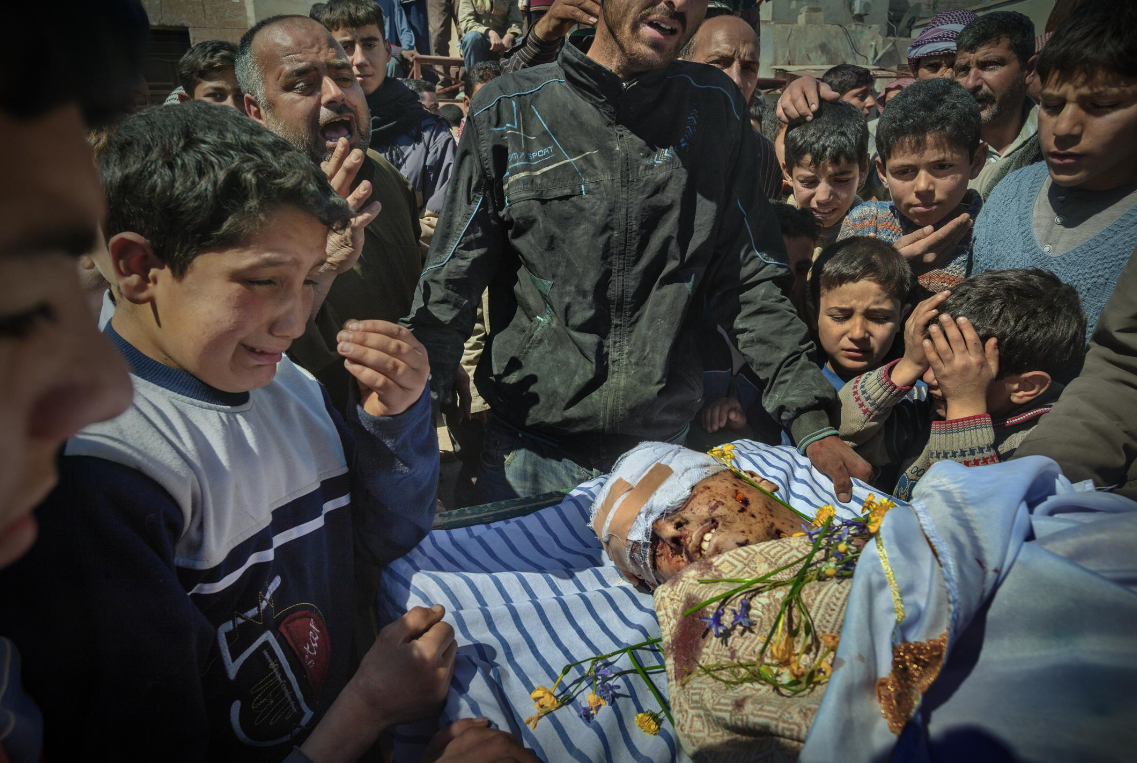
Прямо перед въездом в Ирпень была заправка, там были какие-то украинские позиции, а в нескольких метрах стреляли россияне. Повсюду был хаос, люди бежали. Окольными путями, спрашивая дорогу у местных, мы добрались до церкви, где укрылись те, кто остался в городе. Мне удалось войти туда вместе с мальчиком, у которого внутри церкви была семья. Мы пытались найти его бабушку. Там была маленькая комнатка, а внизу как бы подвал, в котором не было освещения, не было ничего. Там и были эта бабушка и сотни других людей.
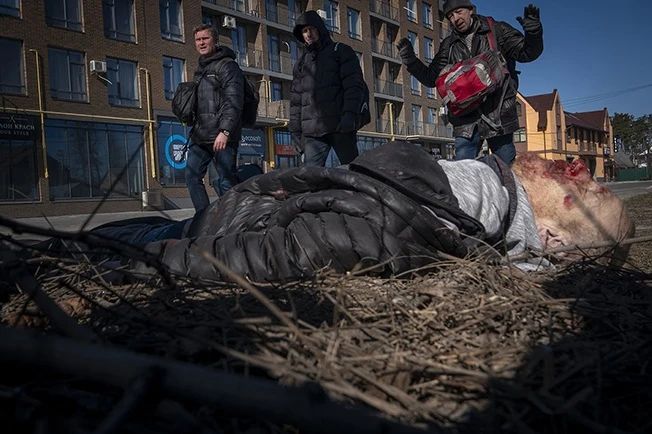
Позже я разговаривал с русскими пленными. Помню одного, с которым общался в Киеве. Он сказал, что не закончил то, что начал, потому что потерял свою часть: грузовик, на котором они ехали, сломался, а потом он заблудился и попал в руки к украинцам. Он не очень понимал, что делает и зачем, говорил, что выполняет задания руководства и он тут ни при чем. Я помню людей из ИГИЛ в Сирии, у которых брал интервью в тюрьмах, — они всегда говорили одно и то же. «Я был на кухне, я ничего не делал», — это повторяющийся аргумент. Но так как у русского не было никаких документов, мы не знали, кто он и что делал. На тот момент он был в больнице из-за ранения, поэтому врач позволил мне с ним поговорить. Тогда все время шли бои, и окна больницы были завешаны одеялами, чтобы снайперы не стреляли.
Андре Луис Алвес: «Я был поражен тем, до какой степени украинцы настроены на борьбу»
Я хотел стать военным фотографом с 2017 года. Когда началось полномасштабное вторжение, я сразу сказал себе, что поеду в Украину, и смог убедить в этом своего редактора в Лиссабоне. Первая поездка продлилась три месяца. Потом, в октябре, я пробыл в Украине примерно столько же, а уже в феврале этого года планировал остаться всего на 15 дней, но в итоге снял квартиру в Киеве и нахожусь здесь по сей день.
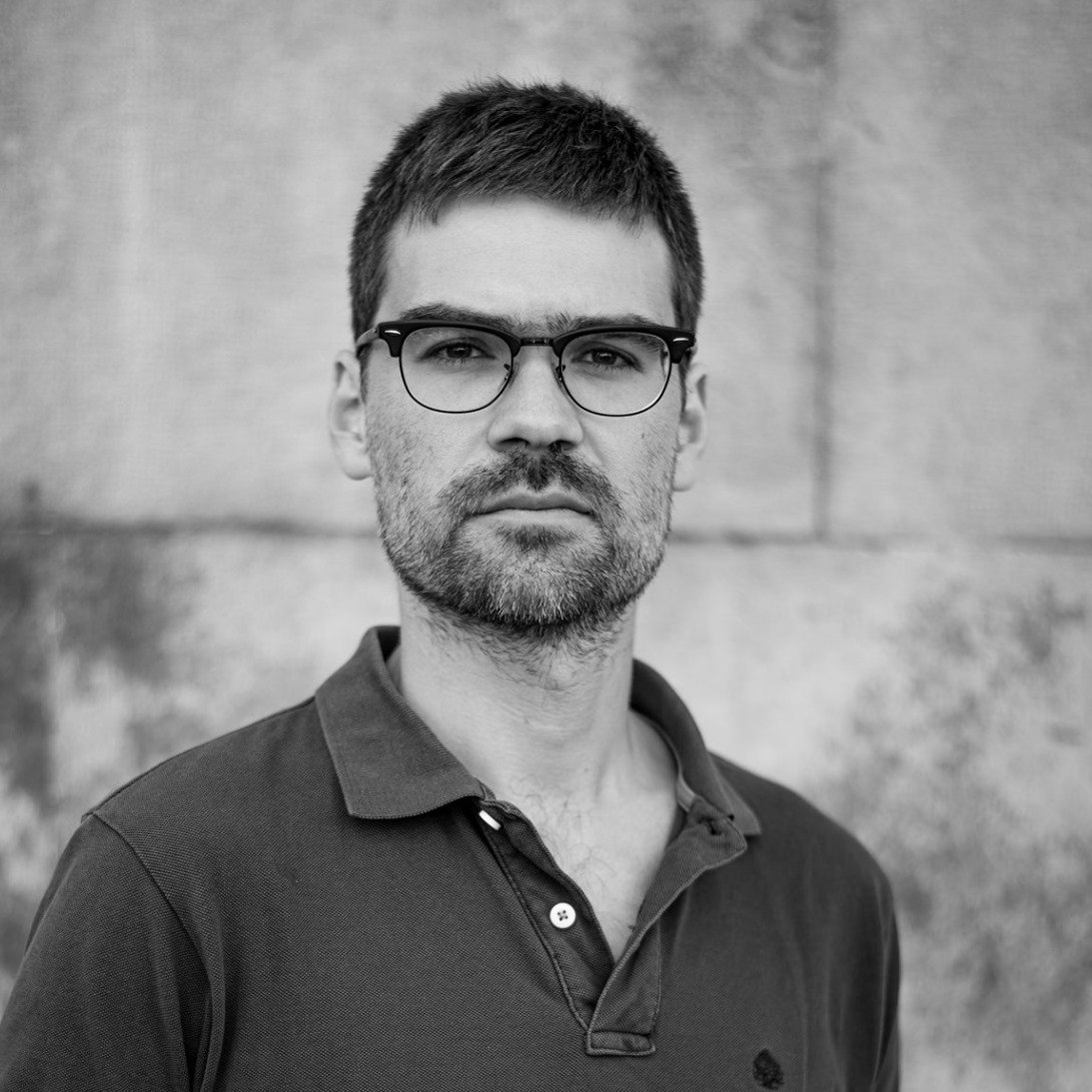
Некоторые коллеги из моей газеты называют меня проукраинским. В какой-то степени это так: я защищаю ценности украинцев и выбрал эту сторону с самого начала, но я не хочу быть ослеплен этим. В Авдеевке я встретил людей, которые были пророссийскими только потому, что слушали российское радио. Нельзя увидеть что-то одно и строить на этом свое мнение, нужно копать и копать.
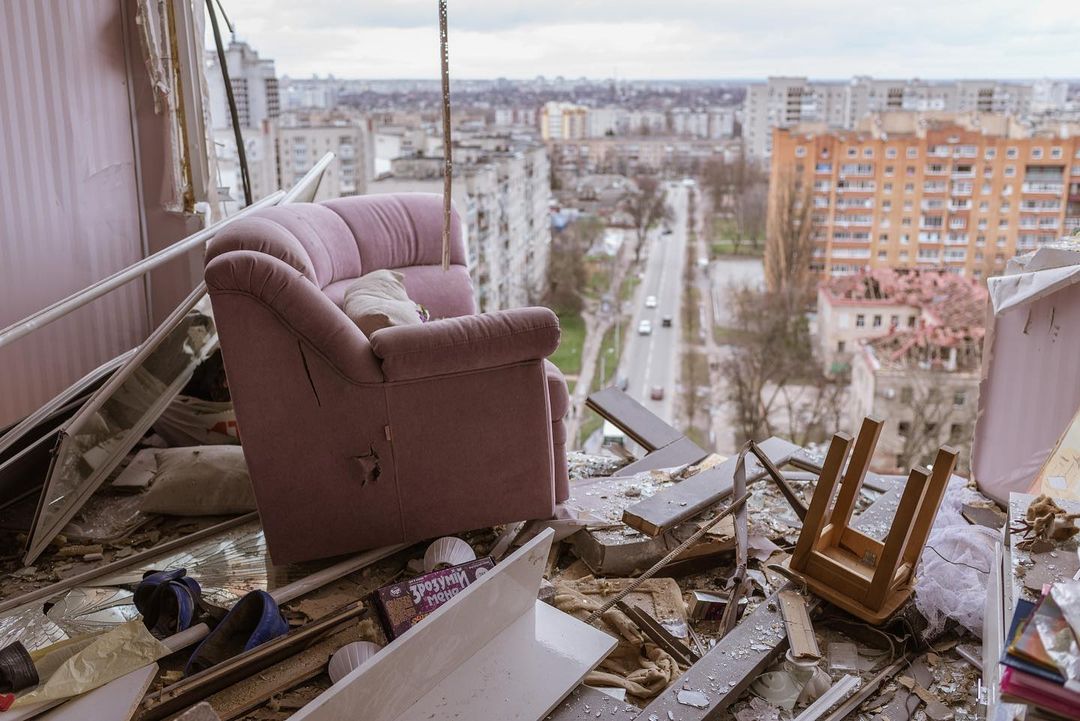
В начале вторжения, когда я только прибыл в Украину, был удивлен, обнаружив, до какой степени общество уже было настроено на борьбу, особенно гражданские: они готовили еду, организовывали безопасные места, жертвовали деньги. Это было действительно впечатляюще, потому что в 2015 году ничего подобного не было. Тогда люди просто жили своей жизнью и политика не занимала особого внимания большинства.
Я как-то разговаривал со своим украинским другом, который прожил во Франции последний год, и понял, что образы войны очень быстро стираются. Воспоминания становятся расплывчатыми и несвежими. В марте прошлого года я попал под обстрел в окрестностях Киева. Но сейчас я помню только факт, а не эмоции.
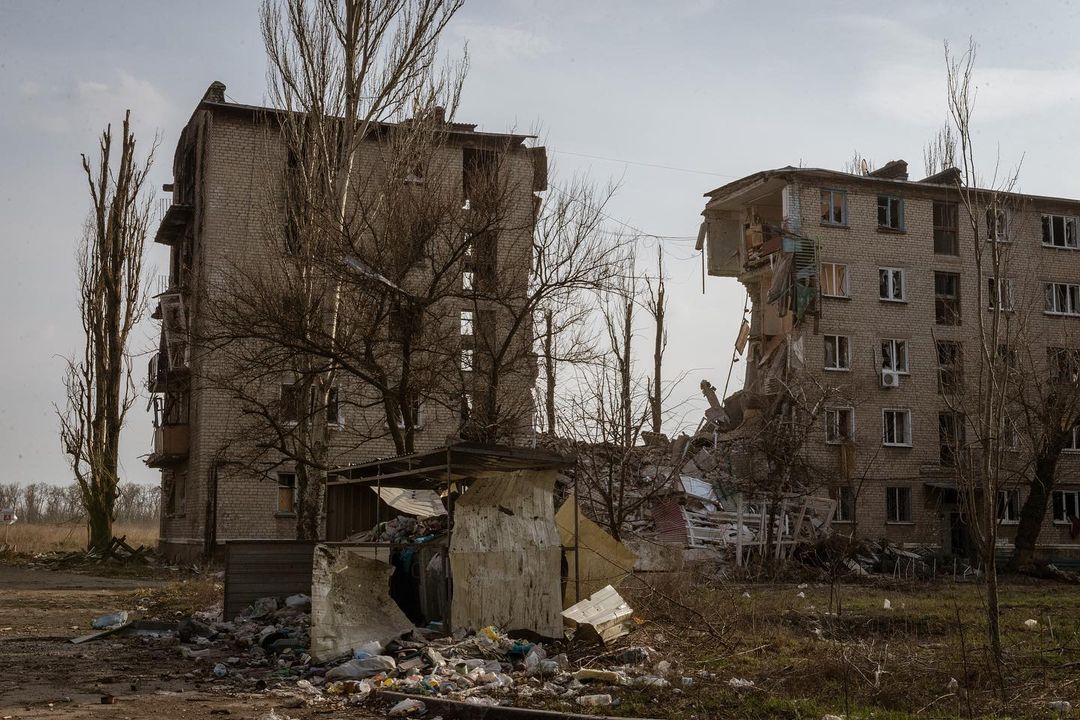
Раньше я думал, что украинцы стыдятся своей страны, но сейчас даже в русскоязычных районах говорят по-украински. В Киеве вы все еще встретите русскоязычных людей, и у некоторых из них есть родственники в России, но это решение начать говорить по-украински действительно имеет значение. У меня есть подруга из Славянска, и она сказала мне, что Украина должна быть благодарна Путину за то, что ему удалось объединить их. Зеленский не был бы политиком без этой войны.
В основном правосудие на фронте не работает. Однажды я фотографировал что-то недалеко от Купянска, подошел пьяный солдат и попытался отобрать у меня фотоаппарат. К счастью, подоспели другие солдаты и помогли мне. Но большинство украинских солдат и полицейских очень корректны или, по крайней мере, пытаются ими быть.
Украинцы пытаются противопоставить себя россиянам именно тем, что ведут себя лучше, — так они демонстрируют разницу. Они смотрят на то, что делает российская армия, и не хотят делать то же самое. Я был в российских окопах после того, как они ушли, и там был полный бардак, а на украинских траншеях иногда даже остаются цветы в память о погибших.


